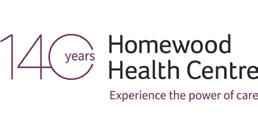Managing Mental Health & Addiction



ConnexOntario connects Ontarians experiencing mental health, addiction, and problem gambling challenges with useful supports, 24/7.
Tania Amardeil
If you or a loved one is facing challenges with mental health, addiction, or gambling, you’re not alone. According to the Centre for Addiction and Mental Health (CAMH), one in five Canadians experiences a mental illness in any given year, with young people aged 15 to 24 being the most affected. People with mental illness are twice as likely to have a substance use disorder compared to the general population. And with 62.2 per cent of Ontarians reporting gambling in the past year, hundreds of thousands of people are at risk for gambling-related problems. To tackle these issues and provide resources for those in need, Ontario has established better support systems like ConnexOntario.
24/7 live support
ConnexOntario’s extensive database includes over 5,000 programs that Ontarians can
access to find the right support and services for themselves or their loved ones. The organization offers free and confidential information about various health care services. They will help you navigate the health care system and get you the right services you need. In this world where AI is the norm, ConnexOntario and its team are available 24/7 with every call answered by a live person.

Language barriers can often prevent individuals from accessing the support they need. ConnexOntario bridges this gap by providing translation services for web chats and texts in over 130 languages, ensuring help is accessible to everyone.
ConnexOntario envisions a province where all people in Ontario are connected to mental health and addictions support where, when, and how they need it.
If you or a loved one would like to get 24/7 health care information and access to free and confidential support and services, call 1-866-531-2600, text “connex” to 247247, or chat with the ConnexOntario team at connexontario.ca (standard data and text rates may apply).

about
Randall Anthony
Misconceptions about addiction persist even as experts gain effective new treatment tools and research advances. Ongoing myths about individuals with substance use disorder (SUD) can cause considerable harm, according to Dr. Yelena Chorny, Chief of Addiction and Trauma Services at Homewood Health Centre in Guelph, Ont.
“Myths are perpetuated because of the continuing stigma around addiction,” says Dr. Chorny. People often internalize stigma and feel shame. “They feel alone and fear that speaking up will jeopardize their job, relationships, or other aspects of their lives. The goal is to shatter these myths and encourage people to seek help earlier,” she says.
Below, Dr. Chorny shares insights to debunk the top myths about addiction and treatment.
Myth #1: You have to hit “rock bottom” before treatment can be effective
This misconception is untrue and damaging. People with addiction can seem to be functioning well but still need help. Earlier interventions increase people’s chances of getting well, and having

family support and a job to go back to can increase the chances of a successful recovery. Treatment motivation varies — some people want to be better partners or parents — and part of our role is to strengthen that motivation.
Myth #2: Individuals are in a “bubble” and far removed from real life when in treatment
Some believe inpatient treatment isn’t effective because it’s not “real life.” But creating a protected space helps people focus fully on their recovery. In treatment, people encounter the same challenges that they have in everyday life, and therapists help them reflect on these issues.
Treatment provides an opportunity to practise new ways of coping with conflict, communicating, and tolerating difficult emotions in a structured environment, where using substances isn’t an option.
Myth #3: You can’t truly treat other mental illnesses until someone is sober
People seeking treatment for a mental health issue often hear, “Come back when you’ve been sober for three months.” But SUD frequently co-occurs with mental

health issues like depression, anxiety, and PTSD. Treating both simultaneously is the gold standard.
Homewood offers unique programs for co-occurring mental health and addiction issues.
Myth #4: Once SUD treatment is complete, individuals are cured
Inpatient treatment is an important step in a person’s recovery journey, but it’s just one step. Addiction is a lifelong disorder requiring ongoing management. At Homewood Health Centre, we offer a “stepped care continuum” model that includes inpatient treatment, outpatient services, peer support, individual counselling, and recovery management.
The focus is not just on stopping substance use but on helping people live fulfilling lives.
Myth #5: People don’t change and never fully recover
Media often focuses on the crisis of addiction, but many people do get better. Patients with severe addictions and trauma have gone on to lead fulfilling lives after treatment.
Accessing the right supports can lead to dramatic life changes, allowing people to live the life they choose.
Are you or someone you care about living with mental health or addiction challenges? Homewood Health Centre is a fully accredited, physician-led treatment facility offering several specialized programs and extensive treatment services. Reach out today. Call 1-866-6087533 or visit homewoodhealth centre.com/ torontolife
This article was sponsored by Homewood Health



